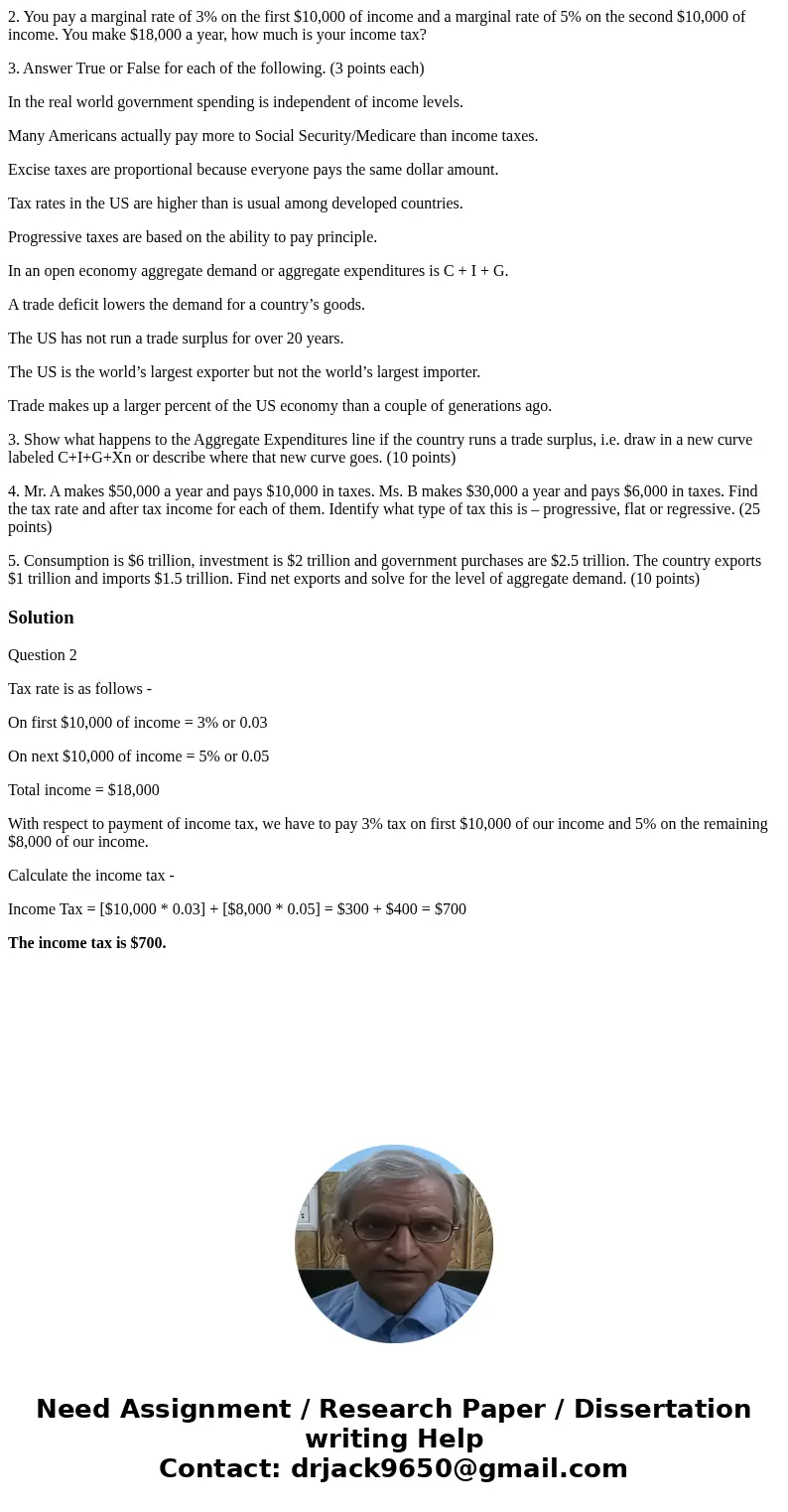2 You pay a marginal rate of 3 on the first 10000 of income
2. You pay a marginal rate of 3% on the first $10,000 of income and a marginal rate of 5% on the second $10,000 of income. You make $18,000 a year, how much is your income tax?
3. Answer True or False for each of the following. (3 points each)
In the real world government spending is independent of income levels.
Many Americans actually pay more to Social Security/Medicare than income taxes.
Excise taxes are proportional because everyone pays the same dollar amount.
Tax rates in the US are higher than is usual among developed countries.
Progressive taxes are based on the ability to pay principle.
In an open economy aggregate demand or aggregate expenditures is C + I + G.
A trade deficit lowers the demand for a country’s goods.
The US has not run a trade surplus for over 20 years.
The US is the world’s largest exporter but not the world’s largest importer.
Trade makes up a larger percent of the US economy than a couple of generations ago.
3. Show what happens to the Aggregate Expenditures line if the country runs a trade surplus, i.e. draw in a new curve labeled C+I+G+Xn or describe where that new curve goes. (10 points)
4. Mr. A makes $50,000 a year and pays $10,000 in taxes. Ms. B makes $30,000 a year and pays $6,000 in taxes. Find the tax rate and after tax income for each of them. Identify what type of tax this is – progressive, flat or regressive. (25 points)
5. Consumption is $6 trillion, investment is $2 trillion and government purchases are $2.5 trillion. The country exports $1 trillion and imports $1.5 trillion. Find net exports and solve for the level of aggregate demand. (10 points)
Solution
Question 2
Tax rate is as follows -
On first $10,000 of income = 3% or 0.03
On next $10,000 of income = 5% or 0.05
Total income = $18,000
With respect to payment of income tax, we have to pay 3% tax on first $10,000 of our income and 5% on the remaining $8,000 of our income.
Calculate the income tax -
Income Tax = [$10,000 * 0.03] + [$8,000 * 0.05] = $300 + $400 = $700
The income tax is $700.

 Homework Sourse
Homework Sourse